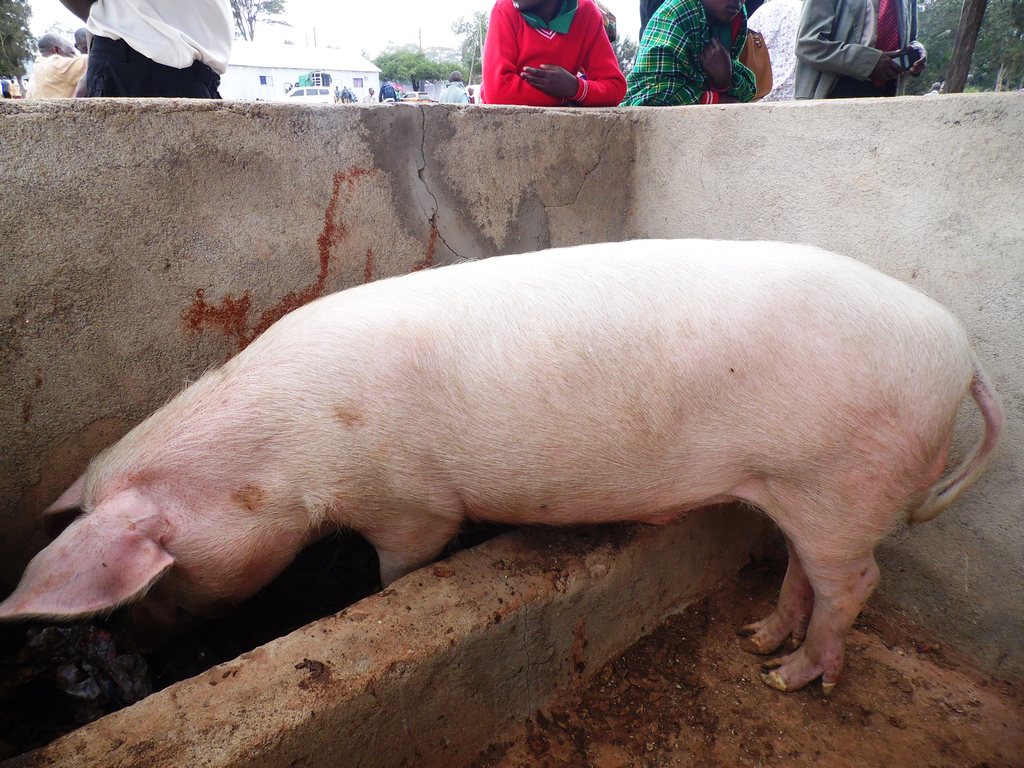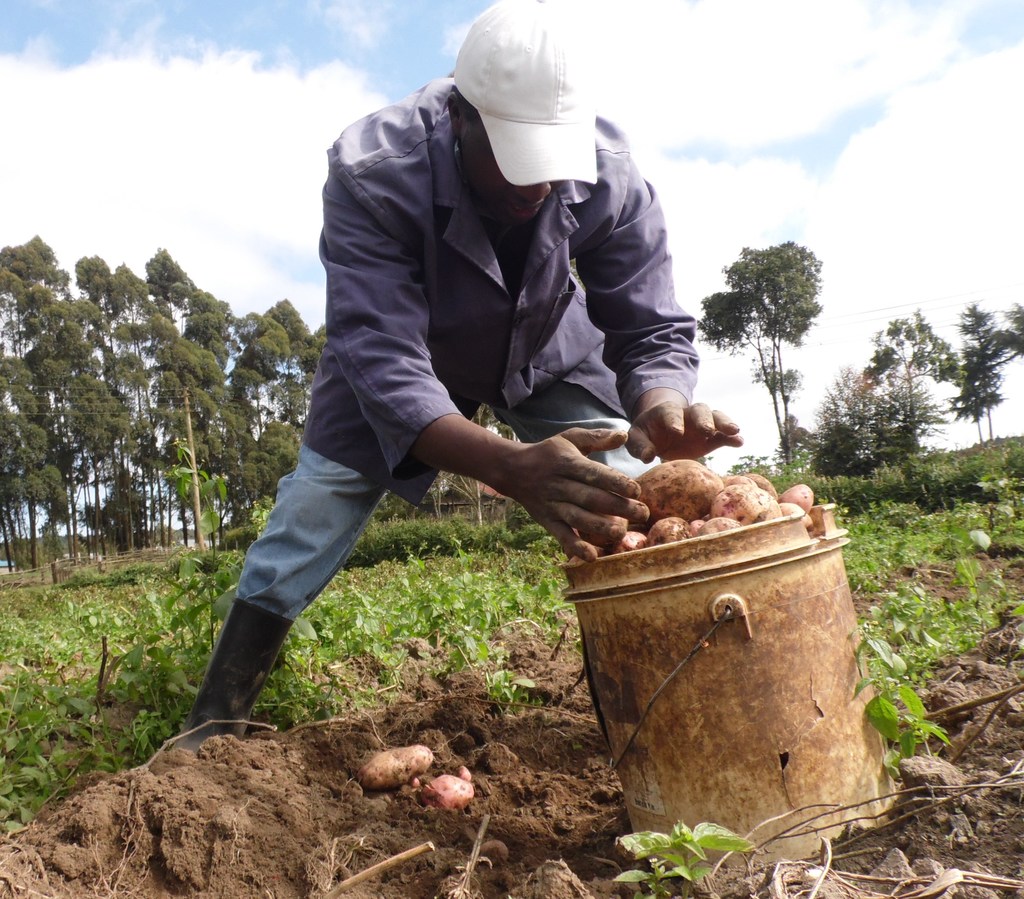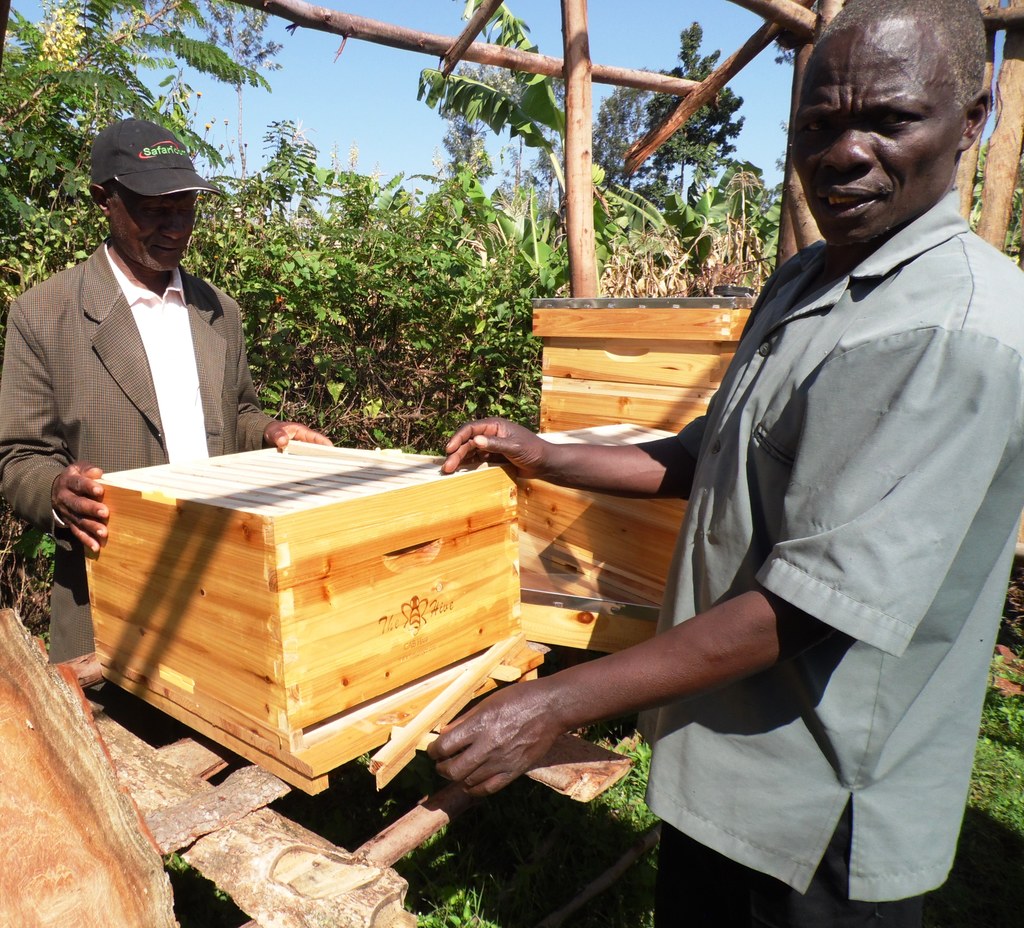Farmers can make up to Sh16,000 net profit in seven months from one pig by following a simple commercial exclusive feeding routine and other management practices.
Exclusive use of commerce feeds gives uniform growth and maturity of the pigs, therefore, making it possible to plan when to breed for delivery to the market.
One Kakamega County pig farmer, Bernard Nyaramba, is making a net income of Sh400,000 by strictly observing a feeding routine, which enables him deliver pigs ready for slaughter to Farmers Choice on agreed times.
This, he said, has created trust from his consumer, as a contracted farmer.
After the first 10 days, Nyaramba introduces the piglets to a handful commercial feeds. They feed on the same for five days before he moves in with about 100grammes per day from the 16th day.
READ ALSO: Exclusive commercial feeding helps farmer deliver pigs on time
Weaners
Nyaramba increases the feeds gradually by 100g for the next 42 days when the piglets are weaned.
Starting from the seventh to the 12th week, he goes on feeding them on the pigs starter meal of 600grammes at a gradual increment of 100 grammes.
“Each piglet consumes about 37 kg of pig starter until the age of 12 weeks. This is about 0.5kg per day on average. By the 12th week, the weaner feeds on one kilo per day,” the farmer said.
Growers
Water must be provided in separate troughs and all feedings are done in the morning, afternoon and in the evening. From the 13th week, the pigs are at the grower’s stage, which runs to the 20th week, when they feed on grower’s meal.
READ ALSO: Ugandan pigs gain 0.5 kgs daily from locally made feeds
During the three-day transition, the grower’s meal must be mixed with the previous starter one to avoid stress.
Each of the pigs consumes 1.2kg of feeds per day, with an increment of 100grammes to 200grammes each week.
Finishers
By the end of 20 weeks, one young pig consumes 1.8kg per day, translating to 98kg-100kg.
The Kakamega Pig Farm manager said from 21 to 28 weeks, the finishers are growing fast in readiness for bacon.
“Pig finishing meal is served at 2.2kg per day from the 21 weeks. It is increased gradually by 100grammes and 200grammes per pig weekly. This helps in adding weight in readiness for the market,” Nyaramba said.
A pig is ready for slaughter by the 28th week after consuming, after 145kg finishing meal for the eight weeks.
Nyaramba delivers a set of 25 pigs to the Nairobi-based meat processor, Farmers Choice, at the end of the seven months.
Costing the pigs
The meat processor takes care of transport of the animals. After taking care of every expense, he remains with a net income of Sh400,000 from the entire set.
READ ALSO: How two pigs can give you close to Sh1 million in one Year
In costing the feed, every pig consumes 37kg of pig meal starter until the end of weaning, and 100kg grower’s meal up to the age of 20 weeks.
From the 21 week to the 28 week of slaughtering, a pig consumes 145kg at the rate of 2.6kg per day.
That means a pig feeds on 282kg to meat maturity.
The cost of the feeds vary from Sh2,000 and Sh2,600 for every 70kg sack.
READ ALSO: Farmers turn to pig breeding for quick returns
Taking an average of Sh2,300 for every sack of the meal, the farmer spends Sh9,306 to raise the pig, which will fetch a net income of Sh16,000.
Although he did not reveal how much it costs in de-warming and other management practices, the farmer insisted that an established clean sty gives best results, with minimum or no sickness incidences.
PHOTO: Kennedy Musyoka's two-year-old 160kg pig feeding during the Lower Eastern Agricultural Society of Kenya Show in Machakos County on July 6, 2016.Kakamega County farmer is making about Sh16,000 net income from pigs in seven months. PHOTO BY LABAN ROBERT.


















